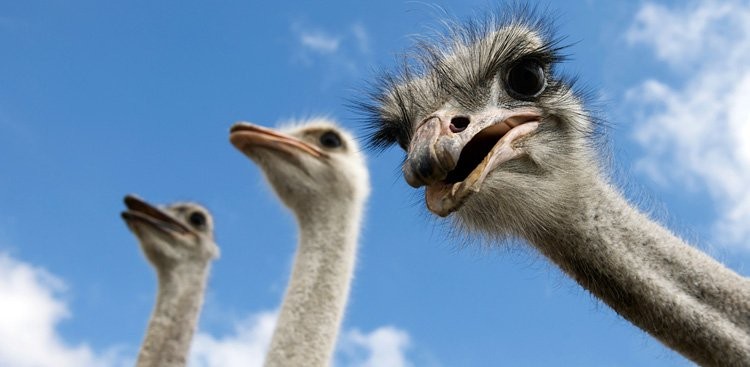
At one stage in my life, I did not open official-looking envelopes that contained bills or bank statements. My thinking at the time was simplicity itself: if I didn’t know about it, it would not bother me. Simple logic it might have been nevertheless, it was stupid in the extreme. I might as well have closed my eyes and ears and stood on a busy railway line.
This mental state of deniability is temporarily comforting and helps us to get through the day, while at the same time, reducing our chances of dealing with the ever-growing and impending doom. In a perverse way, it is like taking pills from a bottle labelled “Placebo Medication”, which defeats the object because a placebo can only work if the patient receiving it genuinely believes it to be proper medicine, rather than just sugar pills.
Yet, we do it at various stages of our lives, privately and professionally, individually and collectively. Men and women of impeccable skills and expertise indulge in denial. Some are so good at it, they in fact recruit many around them to join in this fantasy world they create for themselves. Their power of persuasion is such that otherwise sensible people are slowly cajoled to set aside uncomfortable or inconvenient facts and realities and step into this other world where everything sounds and looks so much better.
Then there is the politically expedient term of “plausible deniability” which is deliberately used by politicians and business leaders to create an alternative fact-like reality, that sounds reasonable and believable, to distract their target audiences from the unpalatably damaging or scandalous truths. This type of denial, despicable as it may be, is understandable because it is designed to mislead without the self-delusional dimension.
But the really strange type of denial is the involuntary non-cynical type that starts in one’s own head and is then conveniently externalized as the truth, the whole truth and nothing but the truth. Thereafter, he/she starts to act on and pronounce judgment based on this false narrative, convinced that he/she is right and commits all energies and resources to defend this conviction.
History is full of alternative-truths created by individuals who were in involuntary denial. They committed crimes, small and major, in the belief that it was perfectly justified to do so. They even wiped out large chunks of past events, as though they never happened, in order to fit history into their version of reality. They invaded countries, started wars, fought and won elections, embezzled companies, committed fraud, all on the basis that they were right and justified because the overall goal they set transcended all other considerations. Worst of all, are the ones who stood by and took no appropriate action when corrective action was necessary and vital; turned a blind eye to wrong-doing; allowed genocide; did not challenge bullies and dictators; they even aided and empowered wrong doers to commit their evil deeds.
Business schools, books, lectures, and keynote speeches bear witness to the prevalence of corporate denial, often created by an influential individual who then seduces boardrooms and senior executives into joining this alternative reality because it seems to be more reassuring than the unpleasant truth. Very often, this signals the beginning of the end for a once-successful business.
It’s easy to label and judge people who display ‘denial’ as bad, delusional, psychopaths, and pure criminals. In many cases, it would be right to do so. However, let us do some introspection here. Can any of us, with hand on heart, claim never to have gone into a denial mode? Maybe not necessarily on major issues like invading a country, rigging an election or destroying a company. Nevertheless, we have walked down the street and ignored pleas for help from a homeless person; witnessed bullying in public or at school and pretended not to hear; became aware of sexual or racial harassment and turned a blind eye. The ‘#MeToo’ movement has emerged as a reaction to the massive abuse of authority and power by a significant percentage of males against half society’s population. We all silently colluded with perpetrators by normalising such behaviour. If that’s not living in denial, I don’t know what is.
Finally, I would like to correct a common misconception. The ultimate state of involuntary denial is to do what the ostrich is supposedly famous for: burry its head in the sand when attacked or pursued. We should all stop using this analogy as it is a complete and utter myth; ostriches never do that. They do what every other animal does when faced with imminent danger; they actually face reality and either fight or flight. We could all learn a lesson from the not-so-humble ostrich and either stand to fight for what is right or, run for cover.


